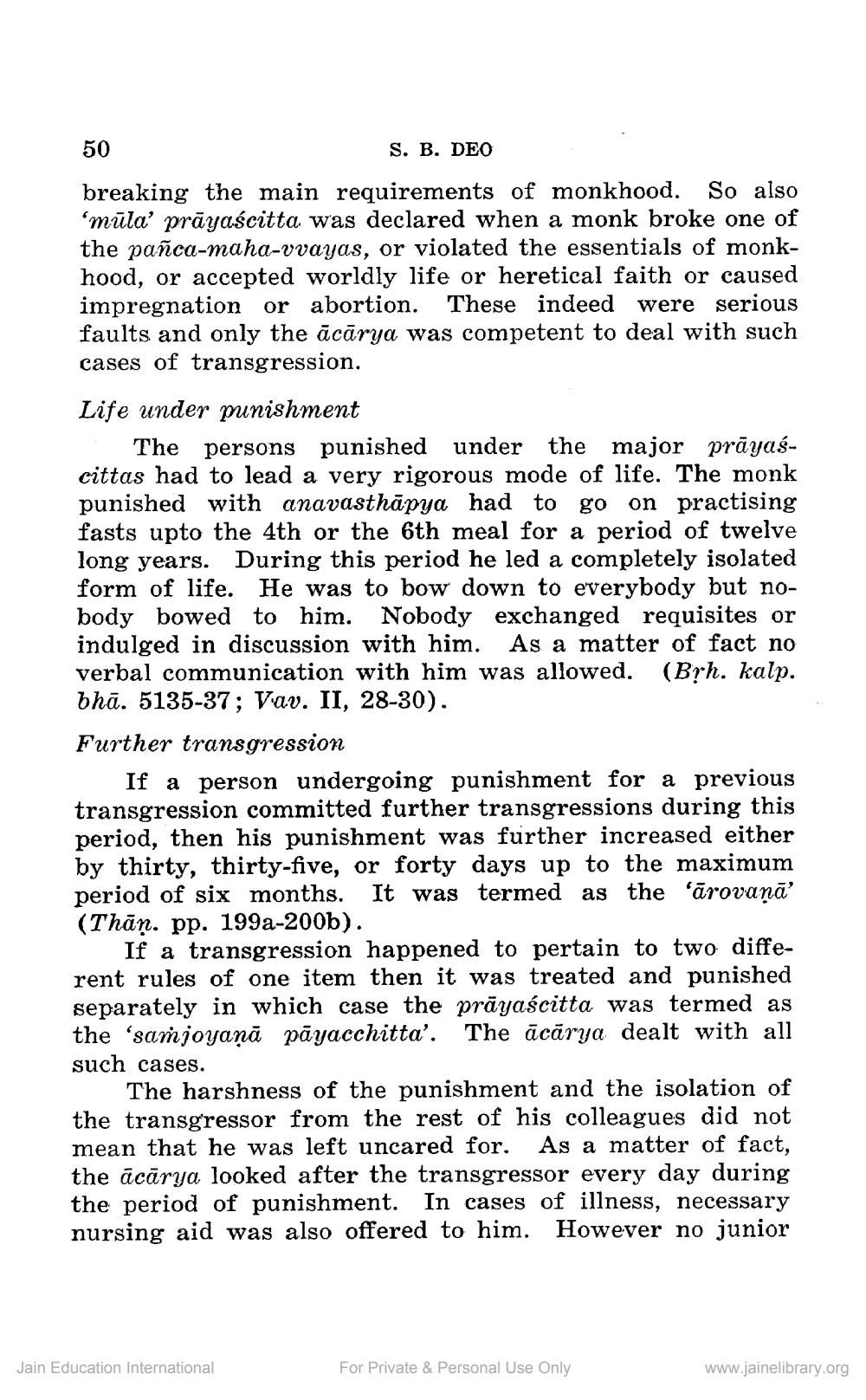________________
50
S. B. DEO
breaking the main requirements of monkhood. So also 'mula' prāyaścitta was declared when a monk broke one of the pañca-maha-vvayas, or violated the essentials of monkhood, or accepted worldly life or heretical faith or caused impregnation or abortion. These indeed were serious faults and only the ācārya was competent to deal with such cases of transgression.
Life under punishment
The persons punished under the major prāyaścittas had to lead a very rigorous mode of life. The monk punished with anavasthapya had to go on practising fasts upto the 4th or the 6th meal for a period of twelve long years. During this period he led a completely isolated form of life. He was to bow down to everybody but nobody bowed to him. Nobody exchanged requisites or indulged in discussion with him. As a matter of fact no verbal communication with him was allowed. bha. 5135-37; Vav. II, 28-30).
(Brh. kalp.
Further transgression
If a person undergoing punishment for a previous transgression committed further transgressions during this period, then his punishment was further increased either by thirty, thirty-five, or forty days up to the maximum period of six months. It was termed as the 'arovaṇā' (Than. pp. 199a-200b).
If a transgression happened to pertain to two different rules of one item then it was treated and punished separately in which case the prayaścitta was termed as the 'samjoyaṇā pāyacchitta'. The acarya dealt with all
such cases.
The harshness of the punishment and the isolation of the transgressor from the rest of his colleagues did not mean that he was left uncared for. As a matter of fact, the ācārya looked after the transgressor every day during the period of punishment. In cases of illness, necessary nursing aid was also offered to him. However no junior
Jain Education International
For Private & Personal Use Only
www.jainelibrary.org




